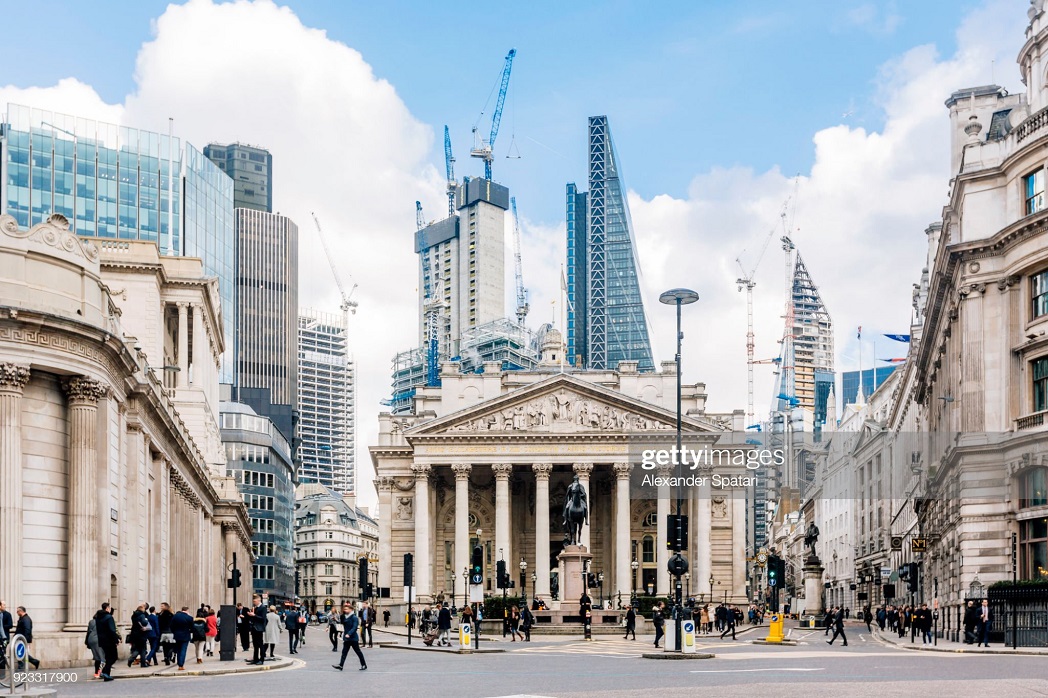Why did the IMF cut the UK’s GDP forecast?
IMF’s current forecast that the UK will shrink 0.6% this year is at the stronger end of the consensus.

IMF forecasted that the UK would shrink 0.6% this year
>> Was the panic in the UK over?
To some, the IMF singled the UK out for a particularly depressing growth revision at the start of this week. Is the IMF being fair by downgrading the UK while upgrading just about everyone else’s growth forecasts for this year? And, on the third anniversary of Brexit, is the UK’s departure from the EU still to blame for the UK’s underperformance? Lastly, if the answers are ‘yes’ and ‘yes’ does that leave the pound vulnerable?
In Mr. Steve Barrow, Head of Standard Bank G10 Strategy’s view, the IMF’s revision to its October forecast is not particularly fair to the UK. For while there seems little doubt that the UK will be the worst performing G7 country this year, it seems strange that the UK has been shunted down, while others have been upgraded. Today we will see the Bank of England update the forecasts that it produced in December and it seems very likely that these will be upgraded, not downgraded. It will probably still forecast a recession, but not such a deep one, thanks in part to the stability that has come back into the gilt market after last autumn’s catastrophe.
In the private sector, forecasts for UK GDP this year are lower than where they were in October, but so too are those for the US and the euro zone. In fairness, the IMF’s current forecast that the UK will shrink 0.6% this year is at the stronger end of the consensus, but it is the way that the UK’s estimate has been cut so much (by 0.9% points from the October forecast) when the forecast for advanced economies as a whole was upgraded by 0.1% point to 1.2%. The IMF cited three main reasons for the downward revision.
The first is the UK’s greater sensitivity to gas prices, given that gas has a larger role in UK energy provision than most others.
The second is that the labor market has not re-absorbed the workers lost during the pandemic, unlike other countries, which puts a handbrake on growth unless productivity is strong – which it is not. The IMF cites sharp monetary tightening in the UK as its third reason for the downgrade.
In Mr. Steve Barrow’s view, the first of these seems odd for, with gas prices plummeting since October the UK might have more to gain than others, not more to lose. The labour market position in the UK is undoubtedly tricky, but it is hardly alone in this as all advanced countries have had problems with high vacancy levels and relatively few workers willing to take the roles.
The last point, about monetary tightening is also replicated elsewhere (apart from Japan). The IMF also cites tighter fiscal policy, but the Chancellor has crafted this to hurt a few years down the line, not in 2023. The pound should not be lower on account of these UK and global growth forecasts for 2023. The UK's position is precarious, but it has not deteriorated in comparison to others, as the IMF would have us believe. This being said, there is still the Brexit question and whether this is holding back growth not just in 2023, but in every year since the exit from the EU three years ago and will continue to do so going forward.
>> The pound will remain vulnerable
There are numerous estimates regarding the cost of Brexit. One of the more recent estimates suggests that the economy (as at the middle of 2022) was 5.5% smaller than if the UK had stayed in the EU. Given that the UK Treasury warned ahead of the 2016 referendum that the economy would be anywhere between 3.4% and 9.5% smaller after 15 years of Brexit it looks as if things are turning out worse than feared.
Today, sterling’s trade-weighted index is around 20% lower than it was before the referendum, having dropped this much soon after the vote. Mr. Steve Barrow argued that sterling’s current level still encapsulates all the bad news that Brexit implies. Moreover, as BoE Governor Carney said at the time, Brexit was like a temporary dose of deglobalization, one that would harm the economy – and the pound. So it has proved. But the key here could be the word ‘temporary’, for as the UK slowly re-globalises, with free trade deals, for instance, so the pound should recover. But this is a long process and not something that’s likely to help too much in 2023. Nonetheless, Mr. Steve Barrow feels that the news flow for the UK is likely to get better, not worse, as the IMF might suggest, and that should stop the pound from falling.








